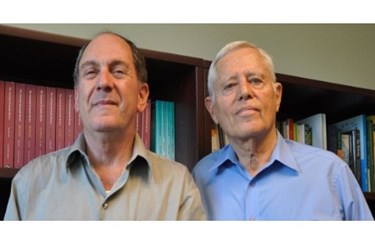Study Of Policy Interventions To Modify Electricity Subsidies Aims To Reduce Groundwater Overuse

Environmental and experimental economists will conduct a one-year project in Mexico
Electricity subsidies have contributed to the overuse of more than a quarter of Mexico’s major aquifers. Researchers from the University of California, Riverside will explore the impacts of policies that modify these subsidies on the behavior of major groundwater users in a project funded by the Center for Behavioral and Experimental Agri-Environmental Research (CBEAR), which is operated jointly by the University of Delaware and Johns Hopkins University.
The project, “Reforming Electricity Subsidies for Groundwater Extraction: A Field Study in Mexico,” has implications for many countries, such as India and Pakistan, where electricity for groundwater pumping is subsidized and leads to overuse of groundwater resources, said Ariel Dinar, professor of environmental economics and policy in the UCR School of Public Policy. The research team also includes Amnon Rapoport, distinguished professor of management in the School of Business Administration, and Edgar Tellez Foster, a Ph.D. candidate in environmental economics in the Department of Environmental Sciences in the College of Natural and Agricultural Sciences.
“The use of electricity subsidies for irrigation is a common practice in both developed and developing countries,” Tellez Foster commented. “It represents a policy challenge especially when the world faces dropping groundwater levels and pressure to produce more food.”
Dinar said the research team will focus on agricultural users in Mexico “because the question of policy intervention in electricity subsidies in Mexico has become a politically heated issue that can reflect on other countries as well.”
The one-year, $19,189 grant is one of 12 awarded by CBEAR, all of which will examine the performance of various public policy approaches to agricultural-environmental problems. The selected projects aim to explain the complex human responses to agri-environmental policies implemented by government, with the goal of helping to design better public programs, according to CBEAR officials.
Focusing on energy subsidies and their connection to the depletion of aquifers is new, and is relevant to many regions and countries, Dinar said.
The researchers will apply experimental economics procedures to elicit changes in the behavior of groundwater users by modifying the subsidy mechanisms. Recruiting 180 farmers from the city of León, in the state of Guanajuato, the team will examine the effectiveness of eliminating or reducing subsidies for electricity, and decoupling. The latter involves increasing the price of electricity while providing a cash transfer to users based on the amount of electricity they used in the past.
“Decoupling policies may encourage water and energy conservation, while at the same time maintaining a farmer’s income and providing the financial resources to adopt water-saving technologies,” Rapoport said.
The CBEAR projects will examine what types of programs and incentives work, which ones do not, and what might work better, explained co-director Kent Messer of the University of Delaware.
“The results of these funded research projects will be available within two years and can directly affect how agri-environmental programs are designed in the U.S. and globally,” added co-director Paul Ferraro of Johns Hopkins University.
About UC Riverside
The University of California, Riverside is a doctoral research university, a living laboratory for groundbreaking exploration of issues critical to Inland Southern California, the state and communities around the world. Reflecting California's diverse culture, UCR's enrollment has exceeded 21,000 students. The campus opened a medical school in 2013 and has reached the heart of the Coachella Valley by way of the UCR Palm Desert Center. The campus has an annual statewide economic impact of more than $1B. A broadcast studio with fiber cable to the AT&T Hollywood hub is available for live or taped interviews. UCR also has ISDN for radio interviews. For more information, visit www.ucr.edu.
Source: University of California, Riverside
